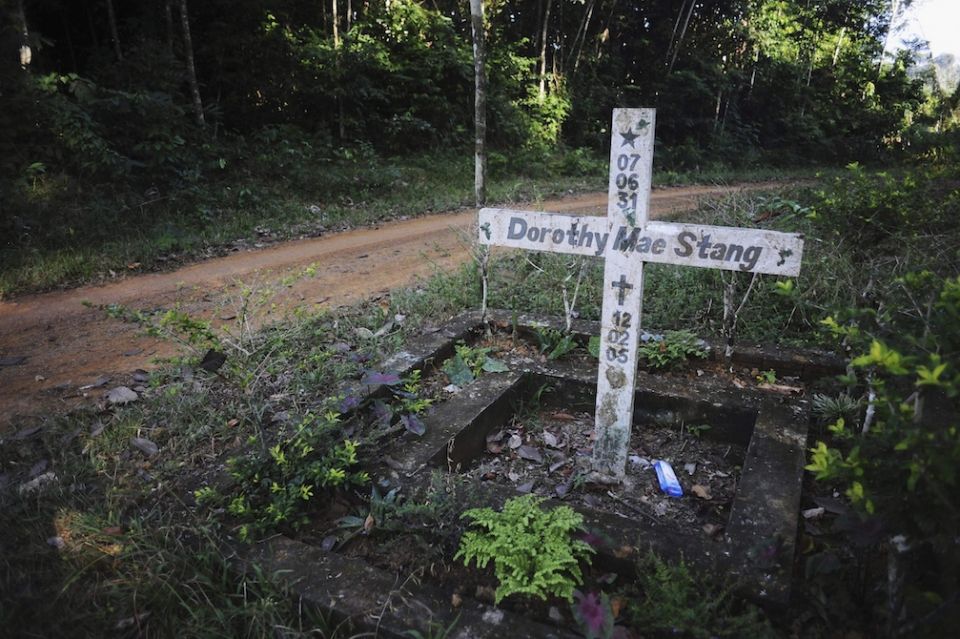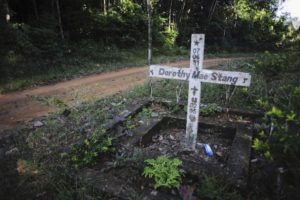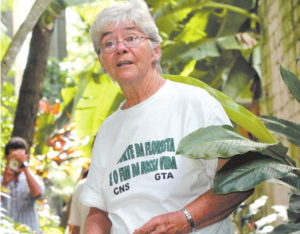
Sister Dorothy Stang’s Legacy Lives on in Newly Discovered Owl
The Sisters of Notre Dame de Namur have announced that a newly discovered screech owl in the Amazon rainforest has been named after the martyred Sr. Dorothy Stang.
 Stang, a longtime champion of farmers’ land rights in rural Brazil, was assassinated in 2005 in the northern Brazilian state of Pará in the Amazon Basin. A native of the United States, Stang became a naturalized citizen of Brazil. Her death led to the creation of a reserve of more than 1 million hectares devoted to sustainable use of rainforest land by the local population, whose rights she championed.
Stang, a longtime champion of farmers’ land rights in rural Brazil, was assassinated in 2005 in the northern Brazilian state of Pará in the Amazon Basin. A native of the United States, Stang became a naturalized citizen of Brazil. Her death led to the creation of a reserve of more than 1 million hectares devoted to sustainable use of rainforest land by the local population, whose rights she championed.
Earlier this year, researchers from Brazil, Finland, and the United States discovered, or “described,” two new species of screech owl in Brazil, and one of those species, the Xingu screech owl, received a scientific name in honor of Stang. The name, Megascops stangiae, honors Stang’s work “on behalf of poor farmers and the environment in the Brazilian Amazon region,” the congregation’s Ohio Province said in a statement.
The common name, Xingu screech owl, is a reference to an area where the new species is found, the statement said. That area is located between the Tapajós and Xingu rivers, the area where Stang worked and was killed.
 Congregational leader Sr. Teresita Weind said biologist Therese Catanach, a member of the research team, contacted the congregation about naming the owl for Stang, as the team was moved by Stang’s life story.
Congregational leader Sr. Teresita Weind said biologist Therese Catanach, a member of the research team, contacted the congregation about naming the owl for Stang, as the team was moved by Stang’s life story.
“Sister Dorothy’s murder left a big impression on me, especially when I started research in tropical forests,” Catanach said.
Two other researchers, Brazilian biologists Sidnei Dantas and Alex Alexio, discussed what to name the owl. Dantas had visited Stang’s gravesite, and Alexio suggested one of the owls be named after Stang as “a way to raise awareness about the Amazon, being the ‘lungs of the planet,’ and home of tropical medicinal plants, birds, animals, and human lives,” the congregation said.
This was originally posted by the Sisters of Notre Dame de Namur.
